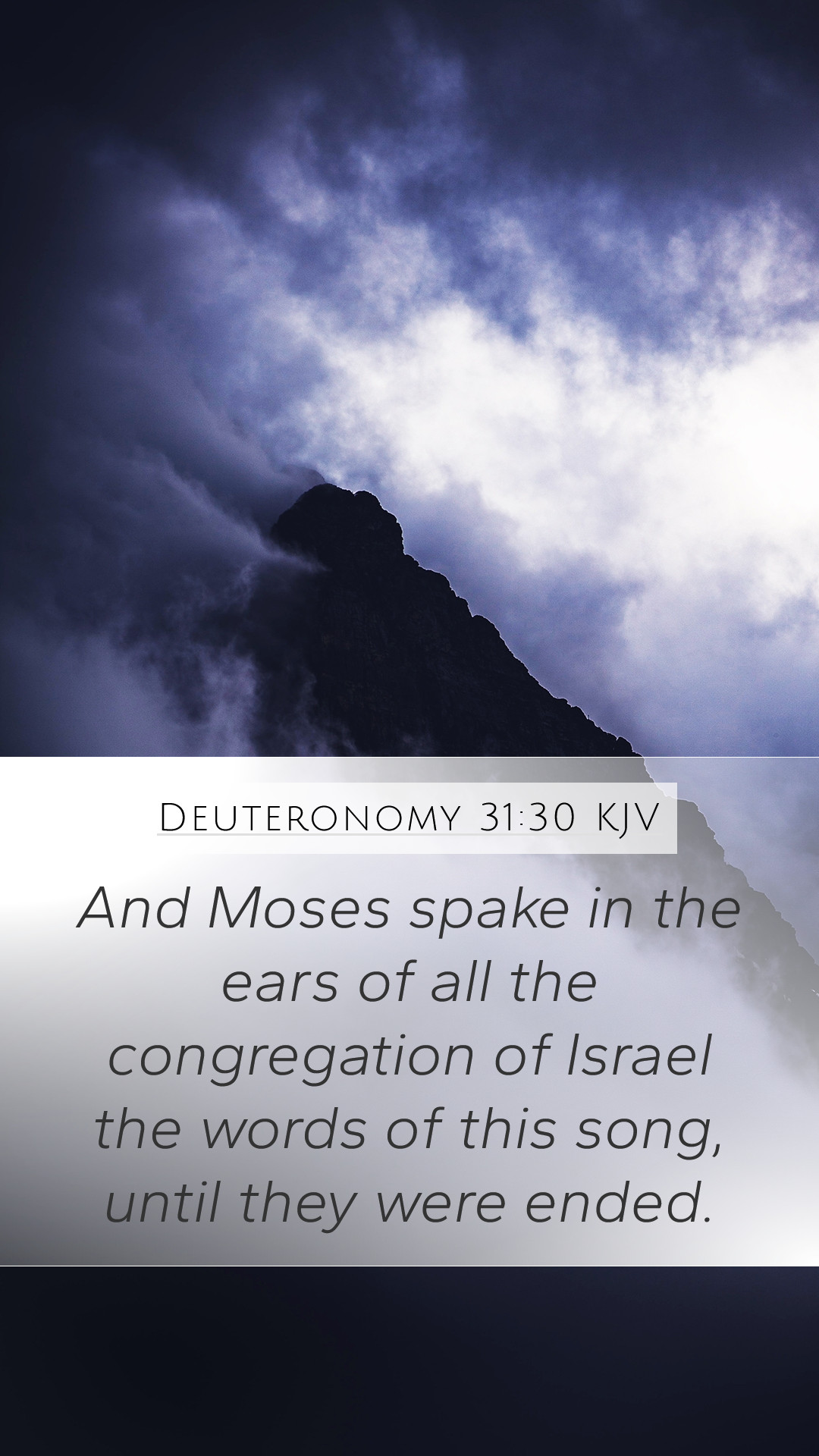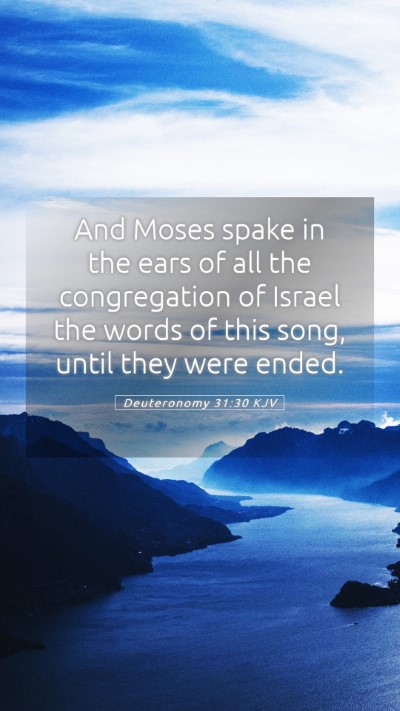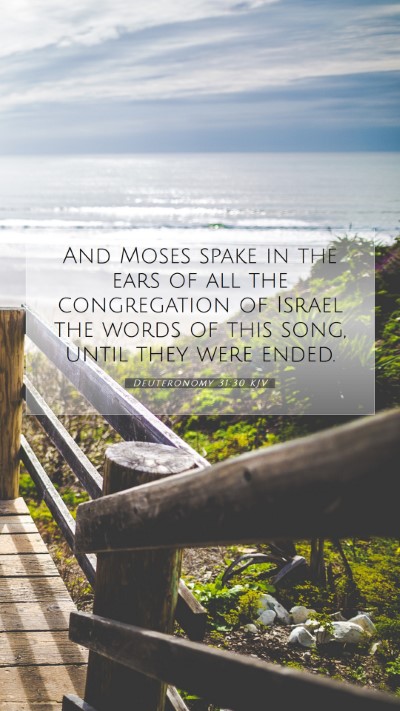Understanding Deuteronomy 31:30
Bible Verse: Deuteronomy 31:30 - "And Moses spake in the ears of all the congregation of Israel the words of this song, until they were ended."
Summary of Meaning
This verse marks an important moment in the book of Deuteronomy wherein Moses prepares the Israelites for the transition into the Promised Land. It highlights the significance of the song that Moses is about to deliver, which encapsulates the essence of Israel's history, their covenant with God, and the consequences of obedience and disobedience.
Bible Verse Commentary
-
Insights from Matthew Henry
Matthew Henry emphasizes that the song serves as a witness against Israel. He indicates that by singing this, Moses intended to remind the Israelites of their past and the importance of remaining faithful to God. The song illustrates both the benefits of obedience and the repercussions of turning away from God.
-
Insights from Albert Barnes
Albert Barnes reflects on the public act of the song's recitation. He notes that having a communal aspect fosters collective memory among the congregation, strengthening their identity as God's chosen people. Barnes points out that the content of the song is both a warning and an encouragement.
-
Insights from Adam Clarke
Adam Clarke interprets the song as an expression of Moses' profound understanding of the heart of Israel. Clarke believes this song serves not only as a reminder of God's past actions but also as a prophetic warning about future disobedience and its consequences, thereby encapsulating the covenant relationship in musical form.
Key Themes and Concepts
- Public Worship: The act of speaking to the congregation underscores the importance of communal worship and remembrance in the Israelite tradition.
- Covenant Relationship: The song reflects the ongoing covenant between God and Israel, serving to remind them of both their responsibilities and God's faithfulness.
- Consequences of Disobedience: The historical and prophetic elements of the song foreshadow the challenges Israel would face if they turned away from God.
- Memory and Identity: The song functions as a narrative device that reinforces Israel's identity and encourages adherence to their covenantal obligations.
Application and Relevance
For contemporary readers, Deuteronomy 31:30 calls attention to the importance of remembering God's words and the lessons of history. It encourages individuals and communities to reflect on their spiritual journey and the significance of worshiping together as an act of remembrance and commitment.
Related Bible Cross References
- Exodus 15:1-21: The Song of Moses and Miriam, reflecting victory and deliverance.
- Deuteronomy 32:1-43: The Song of Moses, a direct continuation and elaboration of the themes presented in this verse.
- Psalm 78:1-4: A call to recount the Lord's deeds to future generations.
Conclusion
Deuteronomy 31:30 serves as a pivotal reminder of the power of song and shared memory in the faith experience. It emphasizes that through music and collective remembrance, communities can stay rooted in their divine purpose, understand the significance of their history, and remain vigilant against future challenges.
Additional Keywords for Study:
- Understanding Scripture
- Scripture analysis
- Applying Bible verses to daily life
- Historical context of Bible verses
- In-depth Bible verse analysis
This verse, and its surrounding context, serves as a vital piece in the broader tapestry of scripture that reinforces the themes of faithfulness, remembrance, and communal identity within the Biblical narrative.


